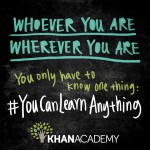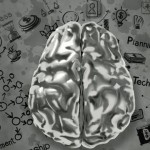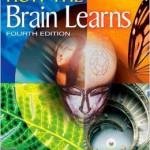 Research: The Khan Academy recently published a video entitled “You Can Learn Anything,” which emphasizes a very positive message about learning. It contradicts the common perception that intelligence is “fixed” or that people are “born smart,” and instead relays a message that we are born to learn. Failure is part of our growth and an important part of the learning process at any age or stage.
Research: The Khan Academy recently published a video entitled “You Can Learn Anything,” which emphasizes a very positive message about learning. It contradicts the common perception that intelligence is “fixed” or that people are “born smart,” and instead relays a message that we are born to learn. Failure is part of our growth and an important part of the learning process at any age or stage.
Practice: We often receive students from other schools who believe they are “bad” at a particular subject because they never got their questions answered, weren’t able to master a concept “in time,” or failed to see the relevance in their assignments. By giving them the support they need to experience success we see students develop the confidence they need to persist, grow, and learn whatever they seek.

 Research: A
Research: A 
 Research: In his model of how the brain learns,
Research: In his model of how the brain learns,  Research: A number of
Research: A number of  Staff highlights:
Staff highlights: